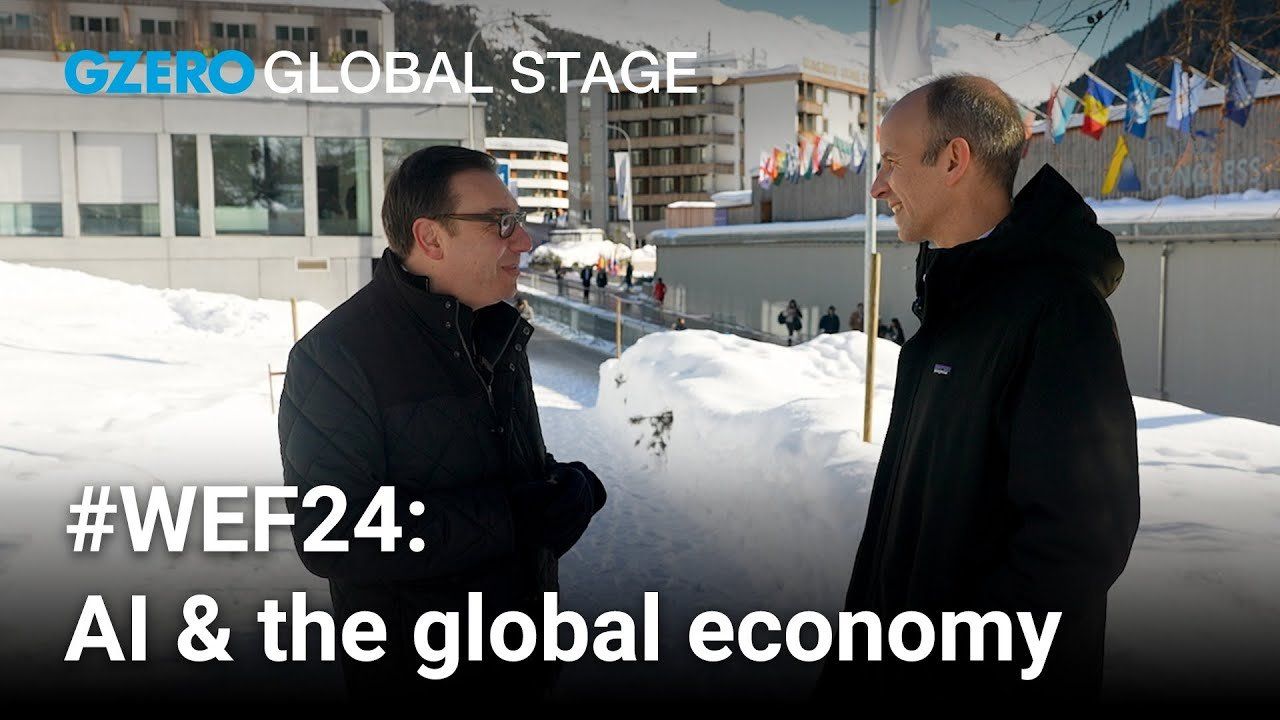This year's Davos is different because of the AI agenda, says Charter's Kevin Delaney

A striking difference between this year’s Davos and previous summits: Everyone is getting serious about real action on AI, says Kevin Delaney, CEO and founder of Charter, a future-of-work media and research company. (Plus, there are no more wild pool parties hosted by the Russian delegation, but that’s a story for another time.)
GZERO’s Tony Maciulis caught up with him on the sidelines of the World Economic Forum’s annual meeting in Davos, Switzerland.
They discuss how the conference has changed over the decades and unpack the topic on every attendee’s agenda: how AI will impact the global economy.
AI is expected to boost global GDP (perhaps even more than expected). But Delaney raises an important question: Will a rising tide lift everyone’s boat, or will the economic gains from generative AI boost the rich and leave the rest behind? “I think it's easy to believe that actually the gains will not be distributed broadly,” he says.
As AI reshapes the workforce, the economic impacts could fuel political consequences. Similar to what we experienced with globalization, there’s a risk “that we have a wave of populace politics that's fueled by genuinely being left out of a lot of the progress there,” says Delaney.
Watch more Global Stage coverage about AI and this year's Davos news here:
- Can watermarks stop AI deception? ›
- Be very scared of AI + social media in politics ›
- Davos 2024: AI is having a moment at the World Economic Forum ›
- Accelerating Sustainability with AI: A Playbook ›
- AI's impact on jobs could lead to global unrest, warns AI expert Marietje Schaake - GZERO Media ›
- Ian Explains: How will AI impact the workplace? - GZERO Media ›